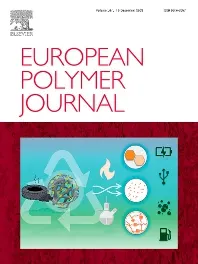Keynote and plenary talks from renowned speakers

The program will include invited plenary lectures, contributed talks and poster sessions highlighting the latest research.
Unfortunately we don't fully support your browser. If you have the option to, please upgrade to a newer version or use Mozilla Firefox, Microsoft Edge, Google Chrome, or Safari 14 or newer. If you are unable to, and need support, please send us your feedback.
We'd appreciate your feedback.Tell us what you think!
11-14 June 2026 | Chengdu, China
Click here to submit your abstract
Join the mailing list to receive updates on future meetings in the series.
Author / Early bird registration deadline: March 13, 2026

The Symposium will feature 9 plenary lectures, given by outstanding scientists whose exceptionally work represents new frontiers for polymer science.
Three parallel sessions with invited and contributed talks in addition to large poster sessions will cover interdisciplinary hot topics within polymer science.
As with the previous six editions of this top-quality international event, we expect to attract more than 600 participants from over 50 countries.
We look forward to welcoming you to Chengdu in 2026!

The program will include invited plenary lectures, contributed talks and poster sessions highlighting the latest research.

Discover conference topics and learn about related events and how you can participate.
Benny Freeman, The University of Texas at Austin, USA - Editor in Chief of Polymer
Yanchun Han, Changchun Institute of Applied Chemistry, Chinese Academy of Sciences, China – Senior Editor of Polymer
Richard Hoogenboom, Ghent University, Belgium – Editor in Chief of EPJ
Jean-Francois Lutz, University of Strasbourg, France – Editor in Chief of Progress in Polymer Science
Yiwen Li, Sichuan University, Local Chair
This conference is organised by Elsevier.

This conference is Co-organized by Sichuan University

Parallel Session: Advanced Precision Synthesis
Topics include:
Novel synthetic routes for polymerization
Molecular recognition and higher order polymer structures
Supramolecular and supracolloidal architectures
Sequence- and topology-specific polymers
New polymer structures by macromolecular engineering
Polymerization mechanisms and kinetics
Functional modification of polymers
Soft and hard nanoparticles
Conjugated/conducting polymers
Bio-inspired polymer systems
Externally controlled polymerizations
Parallel Session: Physics of Dynamic and Non-equilibrium Polymer Structures
Topics include:
Characterization and simulation of molecular and materials properties in bulk, solution, and thin films
Polymer structure and dynamics under confined environments
Molecular dynamics near phase transformations
Polymer structural formations in multiple length and time scales
Structures and dynamics of self-assembled macromolecular systems
Far from equilibrium macromolecular systems/ Dissipative systems
Stimuli responsive and dynamic polymers
Polymer processing in different dimensions
Macromolecular nanotechnology and dynamic force spectroscopy
Protein molecular dynamics
Molecular machines
Parallel Session: Polymer Technology for Solving Societal Energy and Environmental Challenges
Topics include:
Polymers for energy generation and storage
Renewable and sustainable polymers
Biomedical applications and nanomedicine
Polymer for optics
Shape-memory and self-healing polymers
Polymer blends, films, fibers, and networks
Nanocomposites and hybrid nanomaterials
Polymer membranes for biomedical and separation techniques
Polymer degradation and stabilization
Molecularly imprinted polymers
Biobased polymer systems
Additive manufacturing
Antifouling and polymer adhesion
Special Session: Ceremony of the Progress in Polymer Science Awards
Lectures include:
Laureate of the Progress in Polymer Science Career Award
Laureate of the Progress in Polymer Science Scholar Award
Awards
Six best poster awards will be offered. Each participant at the Symposium will be given voting ballots upon registration and will be expected to vote for their favorite poster at the end of each of the three poster sessions.
The voting box will be placed at the Elsevier booth. The winners of the 6 Best Poster Awards will be announced at the Awards Ceremony at the end of the Symposium.






